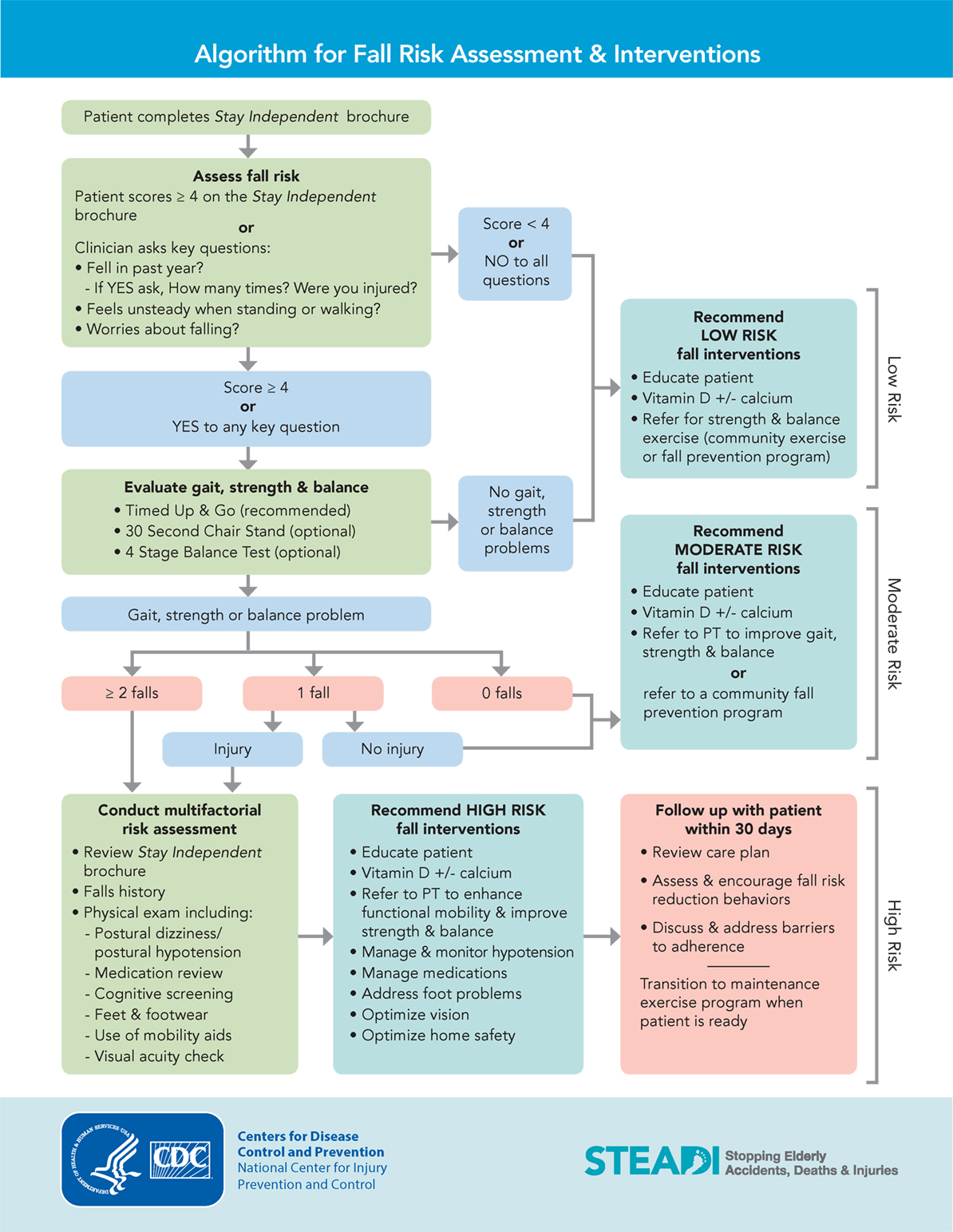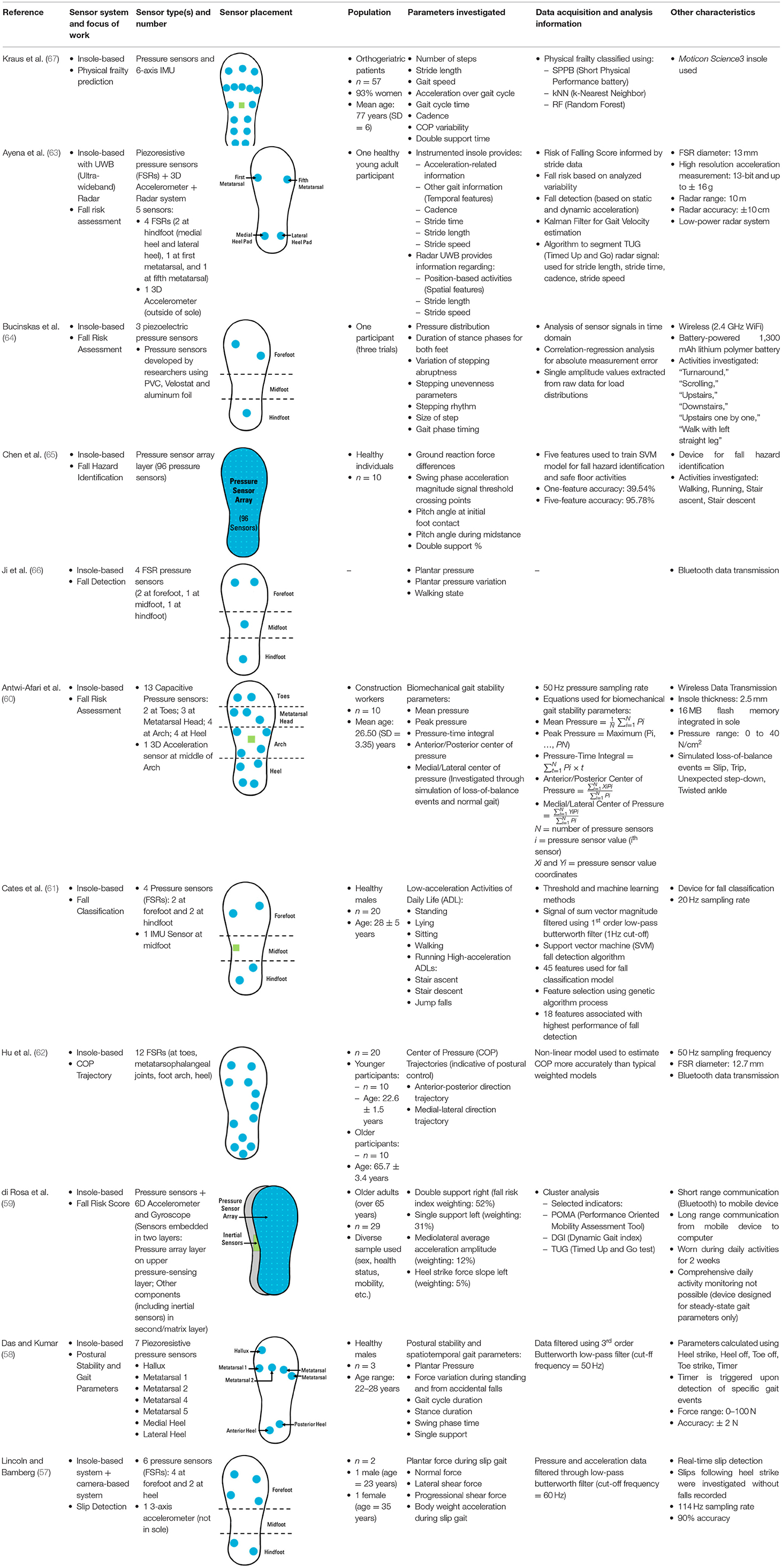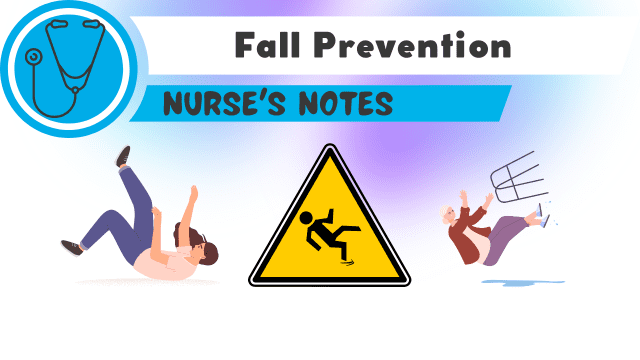The smart Trick of Dementia Fall Risk That Nobody is Talking About
The smart Trick of Dementia Fall Risk That Nobody is Talking About
Blog Article
Indicators on Dementia Fall Risk You Should Know
Table of ContentsRumored Buzz on Dementia Fall RiskDementia Fall Risk - QuestionsThe Ultimate Guide To Dementia Fall RiskDementia Fall Risk - The FactsDementia Fall Risk Things To Know Before You Get This
In the area, inadequate street illumination or unprotected creeks and land fills might likewise trigger mishaps. Loss Threat Assessment Device (FRAT) is a 4-item falls-risk screening tool for sub-acute and property treatment. The FRAT has three areas: drop threat standing, danger variable checklist, and action strategy. A Fall Threat Status includes data about background of recent falls, medications, mental and cognitive status of the client.If the client scores on a threat variable, the equivalent number of points are counted to the patient's fall danger rating in the box to the far right. If a client's autumn danger rating completes five or greater, the individual is at high threat for falls. If the client ratings only 4 points or reduced, they are still at some risk of dropping, and the registered nurse needs to utilize their finest medical assessment to handle all autumn danger variables as component of an alternative treatment plan.
These standard techniques, in general, help create a safe environment that decreases unintended falls and delineates core precautionary steps for all individuals. Indicators are crucial for clients at risk for drops.
Not known Facts About Dementia Fall Risk
Wristbands need to consist of the individual's last and first name, day of birth, and NHS number in the UK. Only red color should be made use of to indicate unique individual standing.
Things that are as well much might call for the patient to connect or ambulate needlessly and can possibly be a risk or contribute to drops. Assists avoid the person from going out of bed with no assistance. Nurses react to fallers' phone call lights a lot more swiftly than they do to lights launched by non-fallers.
Visual problems can greatly create falls. Keeping the beds closer to the flooring reduces the threat of drops and serious injury. Putting the mattress on the floor substantially decreases autumn danger in some medical care settings.
The Best Guide To Dementia Fall Risk
Clients who are tall and with weak leg muscles that attempt to rest on the bed from a standing placement are likely to fall onto the bed because it's also reduced for them to lower themselves safely. Also, if a tall individual efforts to stand up from a low bed without assistance, the patient is likely to more drop back down onto the bed or miss out on the bed and fall onto the flooring.
They're created to advertise prompt rescue, not to stop falls from bed. Aside from bed alarm systems, increased guidance for high-risk clients likewise may assist protect against drops.

Individuals with an evasion gait increase fall chances significantly. To lower loss risk, shoes ought to be with a little to no heel, slim soles with slip-resistant walk, and support the ankle joints. Suggest patient to utilize nonskid socks to avoid the feet from gliding upon standing. Motivate patients to use proper, well-fitting shoesnot nonskid socks for motion.
The 4-Minute Rule for Dementia Fall Risk
Individuals, particularly older adults, have minimized visual ability. Lighting an unfamiliar environment assists raise exposure if the person must stand up during the night. In a research study, homes with adequate lighting report fewer drops (Ramulu et al., 2021). Renovation in lights at home might lower loss prices in older adults (Dementia Fall Risk). The usage of stride belts by all health treatment providers can advertise security when helping patients with transfers from bed to chair.

Sitters are reliable for ensuring a safe and secure, safeguarded, and safe environment. However, researches demonstrated extremely low-certainty evidence that caretakers reduce fall threat in intense treatment healthcare facilities and only moderate-certainty that options like video clip surveillance can lower sitter use without enhancing fall risk, recommending that sitters are not as beneficial as at first believed (Greely et al., 2020).
How Dementia Fall Risk can Save You Time, Stress, and Money.

Enhanced physical conditioning reduces the risk for drops and restricts injury that is suffered when autumn transpires. Land and water-based exercise programs might be similarly valuable on equilibrium and stride and thus decrease the threat for falls. Water workout may contribute a favorable advantage on equilibrium official statement and stride for females 65 years and older.
Chair Increase Exercise is an easy sit-to-stand workout that aids enhance the muscular tissues in the thighs and butts and boosts movement and freedom. The goal is to do Chair Rise exercises without utilizing hands as the client ends up being more powerful. See sources area for a thorough instruction on just how to carry out Chair Surge exercise.
Report this page